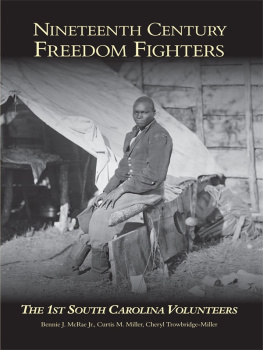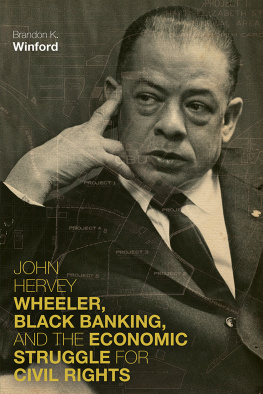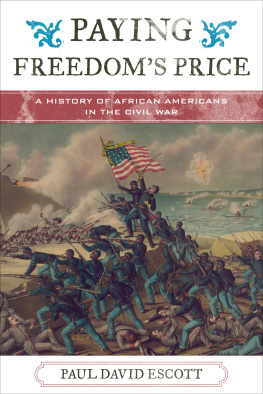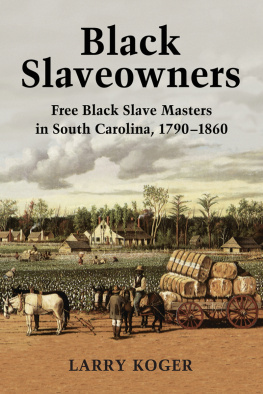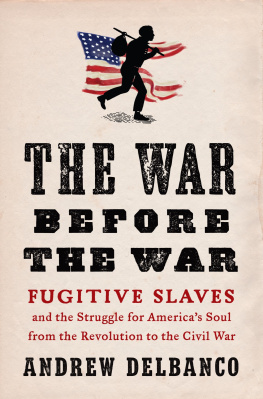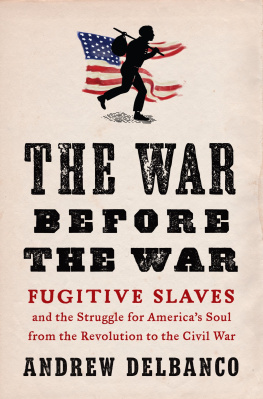This is the story of Abraham H. Galloway (183770), a fiery young slave rebel, radical abolitionist, and Union spy who rose out of bondage to become one of the most significant and stirring black leaders in the United States during the American Civil War. A freedom fighter in what the New Orleans Tribune, the first African American newspaper published below the Mason-Dixon Line, called a Second American Revolution, Galloway burned with an incandescent passion against tyranny and injustice. His war was not the one that we are accustomed to seeing in history books, however. Galloways war had little to do with that of Grant or Lee, Vicksburg or Cold Harbor. It had nothing to do with states rights or preserving the Union. Galloways Civil War was a slave insurgency, a war of liberation that was the culmination of generations of perseverance and faith. It was, ultimately, the slaves Civil War.
Prologue
New Bern, North Carolina May 1863
In the third year of the civil war, a new England abolitionist named Edward Kinsley walked the streets of New Bern, North Carolina. The seaport was usually a town of 5,500 inhabitants, but at that moment it overflowed with thousands of fugitive slaves who had escaped from the Confederacy. The setting was one of excess in all things: hardship, disarray, fear, heartbreak, joy. Federal troops crowded into colonial homes and antebellum manors. Downtown buildings lay in charred ruins: retreating Confederates had burned some of them, and a Union general torched others after snipers shot at his sentries. The Confederates had fled so quickly that they left doors banging in the wind, family portraits in front yards, and a piano in the middle of a street. The murmur of sawmills could be heard across the Trent River, the sound of the former slaves building a new city. The days clattered noisily by, and even the stillness of evening was broken by short bursts of ecstasy: slave sisters reunited after a lifetime apart or the arrival of a slave family that had survived a journey of 150 miles. No one breathed easy. New Bern was a sliver of sanctuary for African Americans in the slave South, and the Confederate army threatened to recapture the city at any time.
Kinsley had come to New Bern as an emissary of Governor John Albion Andrew of Massachusetts, an abolitionist leader seeking to recruit an African American brigade for the Union army. He had traveled south rather loosely incognito, listed on the rolls of the Union steamship Terry as a personal servant to the brigades commanding officer, Brigadier General
Kinsleys mission had not gone as anticipated, however. He had expected the former slaves to throng to the armys ranks. Only months earlier, long before Lincoln authorized the recruitment of African American troops, 120 local freedmen had petitioned Union commanders for the right to take up arms against the Confederacy. By one account, as many as 1,000 African American men had been drilling in New Bern on their own, eager for a chance to join the fray. But something had changed in recent months. Instead of black men swarming to join the Union army, they avoided the new recruiting office on Middle Street nearly to a man. Something was wrong, Kinsley realized, and it did not take [me] long to find out the trouble. All pointed him to one individual, the man whom the slave refugees considered their leader. Among the blacks, he learned, was a man of more than ordinary ability... named Abraham Galloway.
In the spring of 1863, Galloway was a familiar sight in Union army camps in New Bern and in slave communities nearby that were still inside the Confederacy. Born in bondage 100 miles south, by the Cape Fear River, he was an elusive figure who seemed to pass through the enemys pickets like a ghost. The way he held himself was usually the first thing that strangers noticed about Galloway. Only twenty-six years old, he was a handsome man who primped and preened and was at least a little haughty. He was notorious for his sense of honor and his hair-trigger readiness to defend it, yet he was also renowned for laughing loud and often. His defiant posture and his quickness to lash out at anyone, white or black, Yankee or Rebel, who attempted to stain his honor or who insulted a black man or woman in his presence gave credence to stories of his daring behind enemy lines.
Eventually, Galloway consented to see Kinsley at the home of a local black leader named Mary Ann Starkey. She had watched Kinsley closely since his arrival from Boston, and she had finally taken him aside one evening and told him, as he later recalled, I want to see you. The next morning she instructed him to come to her home at midnight. She did not mention Galloway by name, but she was expecting, she said, a couple of friends from the Rebel lines.
When the New England abolitionist arrived that night at midnight,
Galloway looked at him from behind a plain wooden table with only the candle and a Bible on it. He was tall and had long, dark hair and a broad, round face with high cheekbones and what one observer later called flashing brown eyes. He was rather light-skinned, by appearance part Indian, part white, or both. He had no formal schooling and could not read or write well, if at all, but Kinsley recognized immediately that he had come face-to-face with a very shrewd, smart, accomplished man.


